In the field of contemporary dentistry, zirconia dental implants have emerged as a groundbreaking alternative to traditional titanium implants. Made from zirconium dioxide (ZrO2), a durable ceramic material, these implants offer patients a compelling choice for restoring missing teeth with natural-looking results and enhanced biocompatibility. This introduction explores the unique properties of zirconia implants, their distinct advantages over titanium, and their evolution in dental practice.
What are Zirconia Dental Implants?
Zirconia dental implants, also known as ceramic implants, are a modern alternative to traditional titanium implants used in dental restorations. They are made from zirconium dioxide (ZrO2), a ceramic material known for its biocompatibility and aesthetic properties. Zirconia implants are increasingly popular among patients seeking a metal-free option for tooth replacement.
How are They Different from Traditional Titanium Implants?
Material Composition:
- Zirconia: Made from zirconium dioxide, a ceramic material that is bioinert (does not trigger adverse reactions in the body) and resembles the natural colour of teeth.
- Titanium: Typically made from titanium alloy, known for its strength, durability, and successful integration with the jawbone.
Aesthetic Appeal:
- Zirconia dental implants offer superior aesthetic benefits due to their tooth-like colour and translucency, which can blend seamlessly with natural teeth.
- Titanium implants may be visible as a grayish hue through the gums, especially in patients with thin gum tissue or a high smile line.
Biocompatibility:
- Zirconia is hypoallergenic and is well-tolerated by the body, making it suitable for patients with metal sensitivities or allergies.
- Titanium is generally biocompatible but may cause allergic reactions or sensitivities in a small percentage of individuals.
Strength and Durability:
- Both materials are strong and durable, but zirconia is more prone to fracture under extreme forces compared to titanium.
- Titanium implants have a longer history of use and clinical success, with extensive research supporting their reliability and longevity.
Brief History and Development of Zirconia Implants
- Early Development: Zirconia dental implants has been used in dentistry since the 1990s, initially gaining popularity in Europe and gradually expanding worldwide.
- Advancements: Over the years, advancements in ceramic engineering and manufacturing techniques have enhanced the strength and reliability of zirconia implants.
- Clinical Acceptance: Zirconia implants have gained increasing acceptance due to their biocompatibility, aesthetic appeal, and the growing demand for metal-free dental solutions.
zirconia dental implants represent a significant advancement in modern dentistry, offering patients a viable alternative to traditional titanium implants with distinct advantages in aesthetics and biocompatibility. Their development continues to evolve, driven by ongoing research and technological innovations in dental implant materials.
Unveiling the Superiority: Exploring the Benefits of Zirconia Dental Implants
In recent years, zirconia dental implants have gained significant attention and acclaim in the field of dental restoration. These implants, crafted from zirconium dioxide (ZrO2), represent a modern alternative to traditional titanium implants, offering a range of unique advantages that appeal to both patients and dental professionals alike. Let’s delve into the benefits that make zirconia dental implants a preferred choice for many individuals seeking tooth replacement solutions.
Biocompatibility and Allergen-Free Nature
One of the most prominent advantages of zirconia dental implants lies in their biocompatibility. Zirconia is a bioinert material, meaning it does not provoke adverse reactions in the body’s tissues. This property makes zirconia implants suitable for patients with metal allergies or sensitivities, providing a safe and reliable option for dental restoration.
Aesthetic Appeal and Natural Appearance
Zirconia dental implants are highly regarded for their aesthetic qualities. Unlike titanium implants, which may sometimes show through the gums as a grayish tint, zirconia implants closely mimic the natural color and translucency of teeth. This makes them virtually indistinguishable from surrounding natural teeth, enhancing smile aesthetics and restoring patients’ confidence.
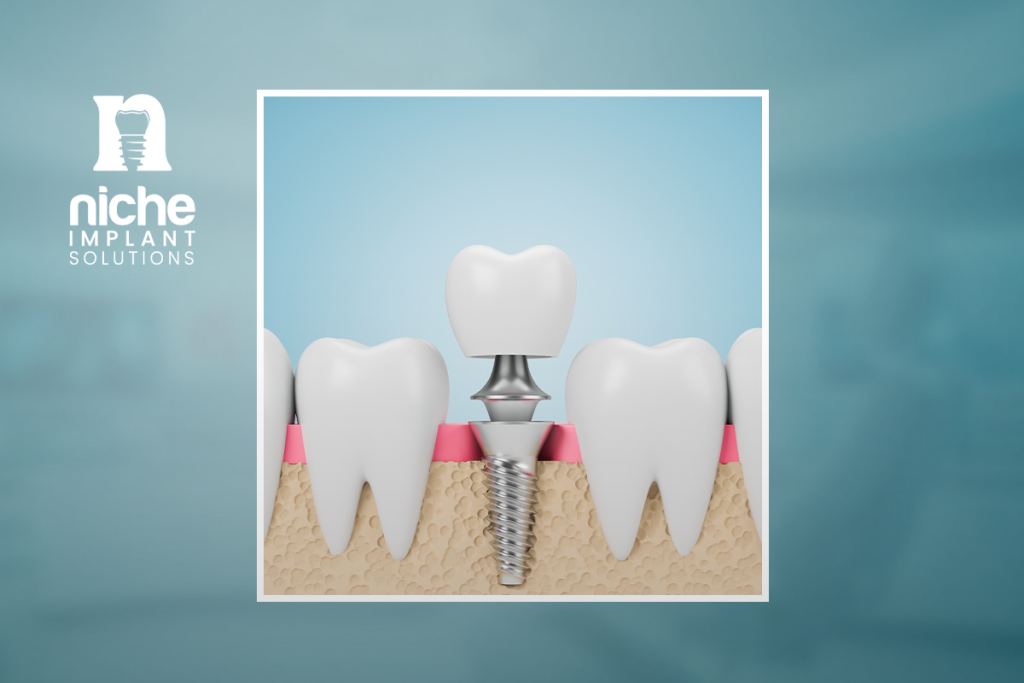
Strength and Durability
Despite being a ceramic material, zirconia implants are remarkably strong and durable. They exhibit excellent fracture resistance and can withstand the pressures of chewing and biting. This durability contributes to their long-term success as a reliable tooth replacement option.
Reduced Plaque Adhesion
Zirconia’s smooth surface characteristics make it resistant to plaque accumulation compared to titanium implants. This property may potentially reduce the risk of peri-implantitis—a condition characterized by inflammation around dental implants—which can contribute to the long-term health of surrounding tissues and the implant itself.
Minimal Thermal Conductivity
Zirconia implants have minimal thermal conductivity compared to metals like titanium. This means they are less likely to conduct hot or cold temperatures, offering improved comfort for patients with sensitive teeth.
Conservative Approach to Bone Preservation
Zirconia implants typically feature a one-piece design, which can help in preserving bone structure and minimizing bone loss over time. This conservative approach supports long-term oral health by maintaining the integrity of the jawbone around the implant site.
zirconia dental implants represent a significant advancement in dental technology, offering a blend of biocompatibility, aesthetic appeal, and durability that make them a compelling choice for tooth replacement. As research and technology continue to evolve, zirconia implants are poised to play an increasingly pivotal role in modern dental practices, providing patients with innovative solutions that prioritize both functionality and natural aesthetics.
Mastering Zirconia dental Implants: Understanding Procedure and Placement
Dental implants, particularly those made from zirconia, offer a sophisticated solution for replacing missing teeth. This article provides a comprehensive guide to the procedure, candidacy considerations, recovery process, and expected outcomes associated with zirconia dental implants.
Step-by-Step Overview of the Implant Procedure
- Initial Consultation:
The journey begins with an initial consultation with your dentist or oral surgeon. During this visit, your dental health will be assessed, and a comprehensive examination, including X-rays or CT scans, may be conducted to evaluate the condition of your teeth, gums, and jawbone.
- Treatment Planning:
Based on the assessment, a personalized treatment plan will be developed. This plan takes into account factors such as the number of implants needed, the condition of the jawbone, and any existing dental issues.
- Surgical Placement:
On the day of the procedure, local anesthesia or sedation will be administered to ensure your comfort. The dentist or oral surgeon will then surgically place the zirconia implants into the jawbone. Depending on your specific case, this may involve a single-stage or two-stage procedure.
- Osseointegration Phase:
After placement, the implants are left to heal and integrate with the jawbone—a process known as osseointegration. This typically takes several weeks to months, during which time the implants fuse with the surrounding bone tissue.
- Abutment Placement:
Once osseointegration is complete, a connector piece called an abutment is attached to the implant. The abutment serves as the foundation for the final restoration (crown, bridge, or denture).
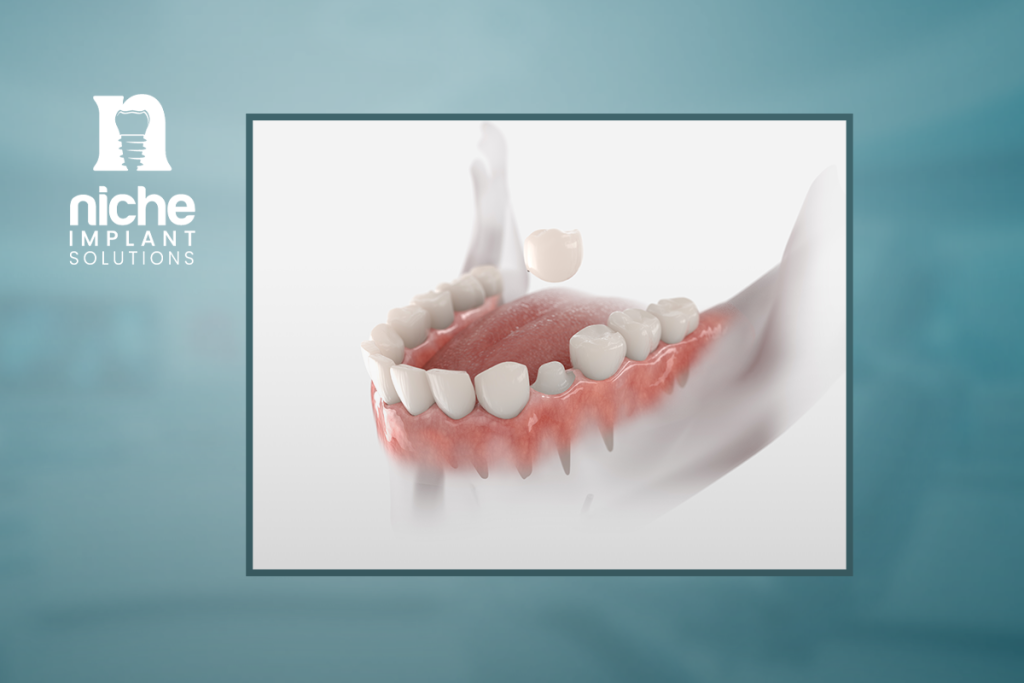
- Final Restoration:
Finally, a custom-made dental restoration (crown, bridge, or denture) is securely placed onto the abutment. This restoration is designed to blend seamlessly with your natural teeth, providing both functionality and aesthetics.
Considerations for Candidacy
- Sufficient Bone Density: Adequate bone density and volume are crucial for successful implant placement. In cases where bone density is insufficient, bone grafting procedures may be recommended to enhance the implant’s stability.
- Healthy Gums: Good oral hygiene and healthy gums are essential to support the long-term success of dental implants.
- Overall Health: Candidates should be in good overall health, with no uncontrolled medical conditions that could interfere with healing.
Recovery Process and Expected Outcomes
- Immediate Post-Operative Care: Following surgery, you may experience some swelling, discomfort, or minor bleeding, which can be managed with prescribed medications and ice packs.
- Dietary Restrictions: Initially, a soft diet and gentle oral hygiene practices are recommended to facilitate healing and prevent complications.
- Long-Term Care: Proper oral hygiene, regular dental check-ups, and avoiding habits like smoking are essential for maintaining the health and longevity of your zirconia implants.
- Expected Outcomes: With proper care, zirconia dental implants have high success rates and can provide long-lasting results. Patients often report improved chewing ability, enhanced aesthetics, and restored confidence in their smile.
Zirconia dental implants offer a sophisticated solution for replacing missing teeth, combining biocompatibility, strength, and aesthetic appeal. By understanding the procedure, candidacy considerations, and recovery process associated with zirconia implants, patients can make informed decisions about their dental health and achieve optimal outcomes. Consultation with a qualified dental professional is crucial to determine if zirconia implants are suitable for your individual needs and goals.
Material Matters: Comparing Zirconia vs. Titanium Dental Implants
In the realm of modern dentistry, the choice between zirconia and titanium dental implants represents a pivotal decision for both patients and practitioners. Each material offers distinct advantages and considerations that can significantly impact treatment outcomes and patient satisfaction. This detailed exploration delves into the fundamental differences between zirconia and titanium implants, examining their material properties, aesthetic qualities, biocompatibility profiles, and more. By understanding these critical distinctions, dental professionals and patients alike can make informed choices that align with their unique needs and expectations.
You can also read: Mastering the Journey: Navigating the Dental Implant Healing Stages for Lasting Oral Health
Material Composition and Properties
Zirconia Dental Implants:
- Material: Zirconia implants are made from zirconium dioxide (ZrO2), a ceramic material.
- Color: Zirconia implants are tooth-colored and can closely mimic the appearance of natural teeth due to their high translucency.
- Strength: Zirconia implants are strong and durable, with good fracture resistance.
- Thermal Conductivity: Zirconia has low thermal conductivity, meaning it is less likely to transmit hot and cold sensations.
- Biocompatibility: Zirconia dental implants is bioinert and generally well-tolerated by the body, making it suitable for patients with metal allergies or sensitivities.
Titanium Dental Implants:
- Material: Titanium implants are typically made from titanium alloy.
- Color: Titanium implants may show through the gums as a grayish hue, especially in patients with thin gum tissue or a high smile line.
- Strength: Titanium implants are also strong and have a long history of successful use in dental implants.
- Thermal Conductivity: Titanium has higher thermal conductivity compared to zirconia, potentially causing more sensitivity to temperature changes.
- Biocompatibility: Titanium is biocompatible and widely accepted by the body. However, a small percentage of individuals may experience allergic reactions or sensitivities to titanium.
Strength and Durability
- Both zirconia dental implants and titanium are strong and durable materials suitable for supporting dental restorations. However, zirconia implants may have slightly lower fracture toughness compared to titanium under extreme forces.
Biocompatibility and Allergies
- Zirconia: Zirconia is considered hypoallergenic and is a preferred choice for patients with allergies or sensitivities to metals.
- Titanium: While rare, some individuals may experience allergic reactions or sensitivities to titanium implants.
Procedure and Clinical Considerations
- Osseointegration: Both types of implants rely on osseointegration, the process by which the implant fuses with the jawbone, for stability and longevity.
- Implant Design: zirconia dental implants are typically one-piece, while titanium implants often come in two pieces (implant and abutment), though one-piece titanium implants are also available.
Cost Considerations
- Zirconia: Zirconia implants may be more expensive than titanium implants due to the complexity of the material and manufacturing processes.
- Titanium: Titanium implants are generally more cost-effective.
Choosing between zirconia dental implants and titanium dental implants depends on various factors, including aesthetic preferences, biocompatibility concerns, and clinical considerations such as bone density and treatment goals. Both materials have their advantages and are widely used in modern dentistry, offering effective solutions for replacing missing teeth and restoring oral function and aesthetics. Consulting with a qualified dental professional can help determine the most suitable implant material based on individual needs and circumstances.
In conclusion
Niche dental solutions company stands as a beacon of innovation and excellence in the realm of dental solutions, particularly in the specialized field of zirconia dental implants. By harnessing the unique properties of zirconia—its biocompatibility, aesthetic appeal, and durability – Niche dental solutions has redefined the standards of dental restoration. Their commitment to precision craftsmanship and patient-centric care ensures that each implant not only restores function but also enhances the natural beauty of every smile.
As the dental industry continues to evolve, Niche dental solutions remain steadfast in their mission to provide superior alternatives to traditional implants, offering patients a reliable choice that combines innovation with practicality. Whether addressing metal allergies, improving oral aesthetics, or promoting long-term oral health, Niche dental solutions sets a benchmark for excellence, transforming lives one implant at a time.
Explore the possibilities with Niche dental solutions and discover how their expertise in zirconia dental implants can elevate your dental experience. Trust in their dedication to quality, innovation, and patient satisfaction to achieve the smile you deserve.
Contact Niche Dental Now : Experience the Difference
Call us on +201011687002

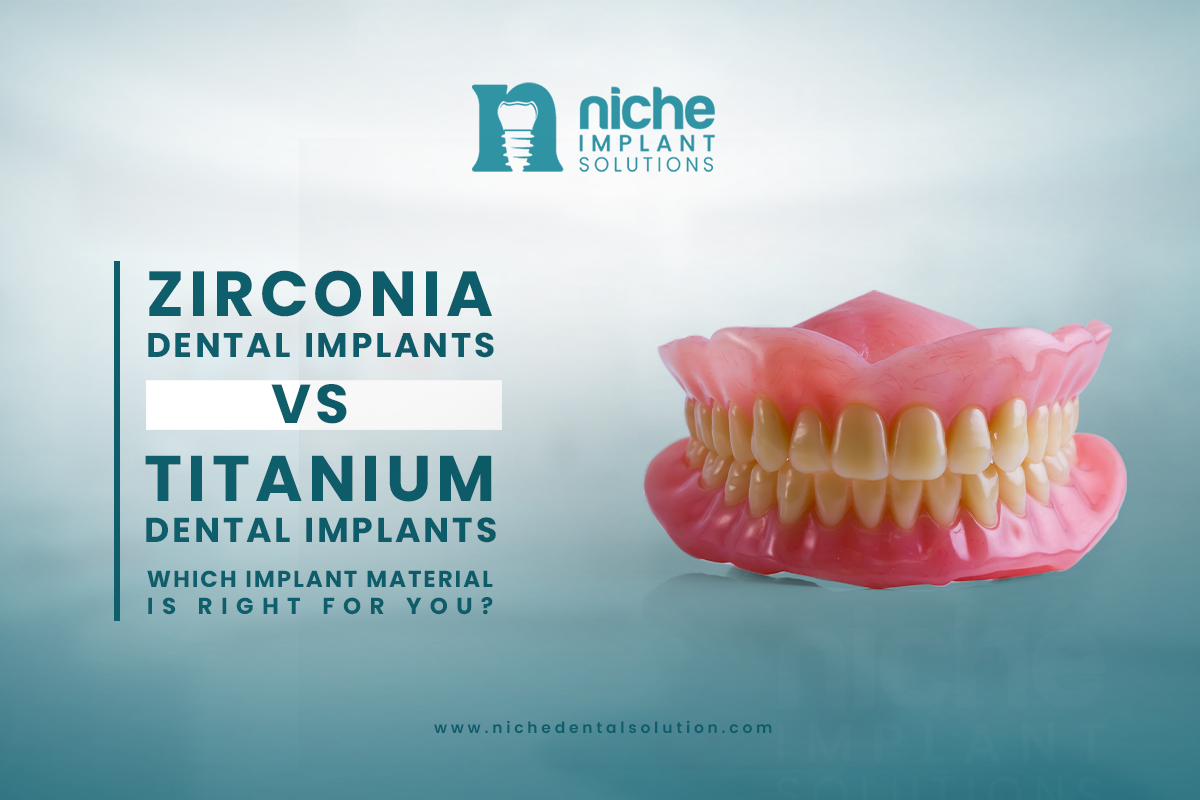
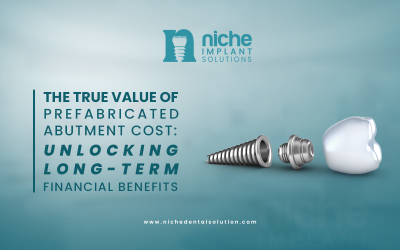
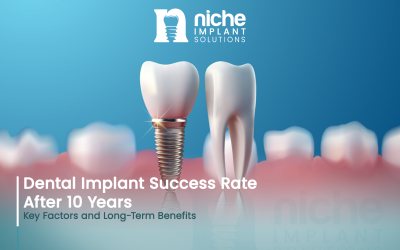
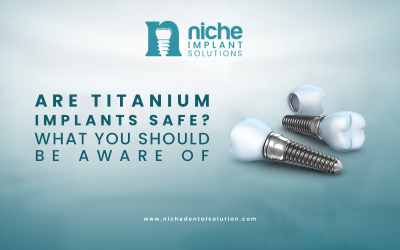
0 Comments